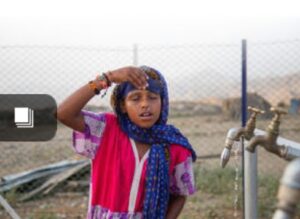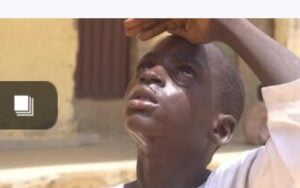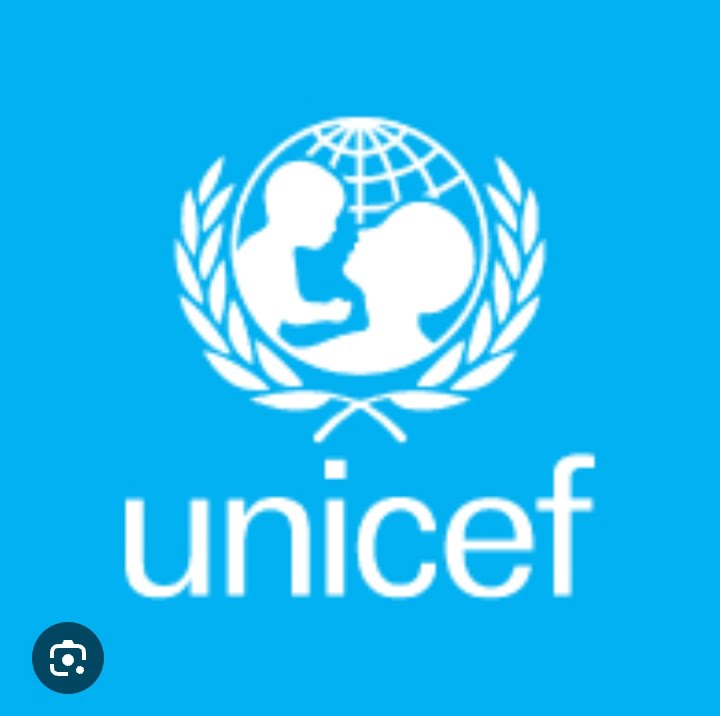Khadijah Aliyu Nigeria
Climate Change: The United Nations Children’s Fund UNICEF has called on leaders, governments and the private sector to deliver urgent and bold climate action which upholds the right of every child to a clean, healthy and sustainable environment.
The UNICEF Executive Director Catherine Russell said according to a new analysis extreme heat is increasing, disrupting children’s health, well-being and daily Routines.
The statement urged countries to reduce emissions and fulfil ambitious international sustainability and climate change agreements to get rising temperatures under control.
READ ALSO: UNICEF KNSG Collaborate to Address Anemia In Pregnant Women
“Protect the lives, health and well-being of children and the resilience of their Communities, and Empower every child through their life course with the developmental opportunities, Education, and skills”
The analysis pointed out that one in 5 children, representing 466 million live in areas that Experience at least double the number of extremely hot days every year compared to Six decades ago.
The statement says globally, children in West and Central Africa face the highest exposure to extremely hot Days and the most significant increases over time.
According to UNICEF 123 Million Children, representing 39% of children in the region now experience an average of more than one-third of the year or at least 95 days in temperatures above 35 degrees Celsius.
“Reaching as many as 212 days in Mali, 202 days in Niger, 198 days in Senegal, and 195 Days in Sudan”
“Eight countries, including Mali, Niger, Senegal, South Sudan and Sudan, are Home to children who spend more than half the year in temperatures above 35 degrees Celsius or 95 degrees Fahrenheit”
SIMILAR: KanSLAM Advocates Increase Timely Release Of Health Budget
UNICEF hinted that the analysis also examines country-level data and finds that in 16 countries, children now Experience more than a month of additional extremely hot days compared to six decades ago.
“In South Sudan, for example, children are living through a yearly average of 165 extremely hot days this decade compared to 110 days in the 1960s, while in Paraguay it has Jumped to 71 days from 36”
The statement maintained that, using a comparison between a 1960s and a 2020-2024 average, the analysis issues a stark Warning about the speed and scale at which extremely hot days, are increasing for almost half a billion children Worldwide, many without the infrastructure or services to endure it.
“In Latin America and the Caribbean, almost 48 million children live in areas that are experiencing twice the number of extremely hot days”

UNICEF explained that heat stress within the body, caused by exposure to extreme heat, poses unique threats to The health and well-being of children and pregnant women, particularly if cooling Interventions are not available.
RELATED: Hesitancy Catalyst In Reducing Vaccination Globally -UNICEF
“It has been linked to pregnancy complications such as Gestational chronic diseases and adverse birth outcomes including stillbirth, low birth weight, and preterm birth”
“Excess levels of heat stress also contribute to child malnutrition, Non-communicable diseases such as heat-related illnesses, and leave children more vulnerable to infectious diseases that spread in high temperatures such as malaria and Dengue”…
The analysis highlighted that, the Impact of climate-related hazards on child health is multiplied by how climate-related Hazards affect food and water security and contamination, damage infrastructure, disrupt Services for children, including education, and drive displacement.
“In the coming months, all Member State Parties to the Paris Agreement must submit new National climate plans Nationally Defined Contributions These plans will set the course of climate action for a decade”





